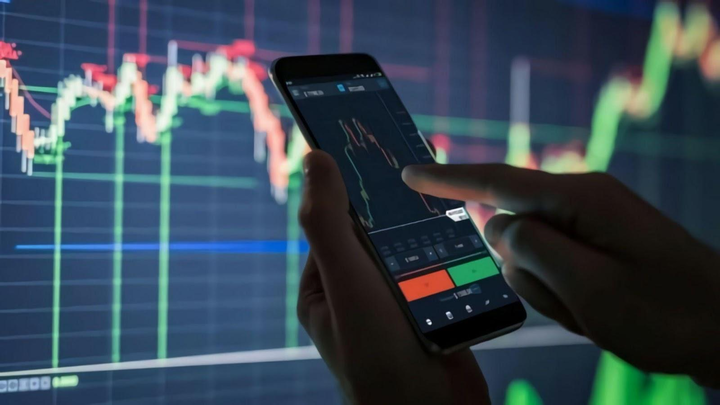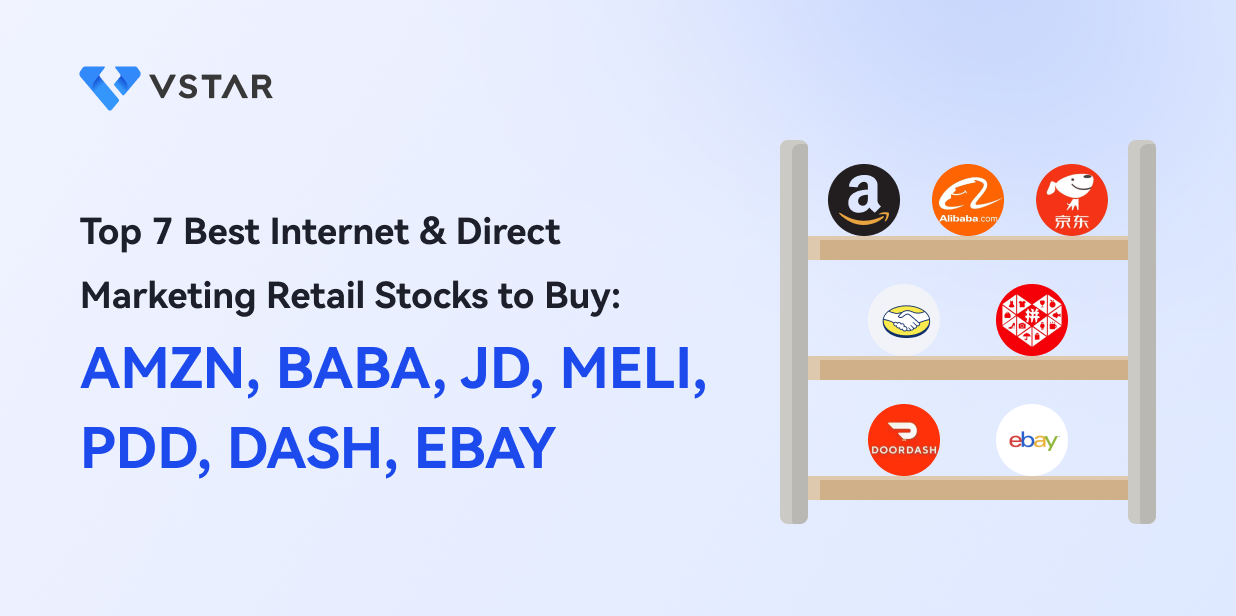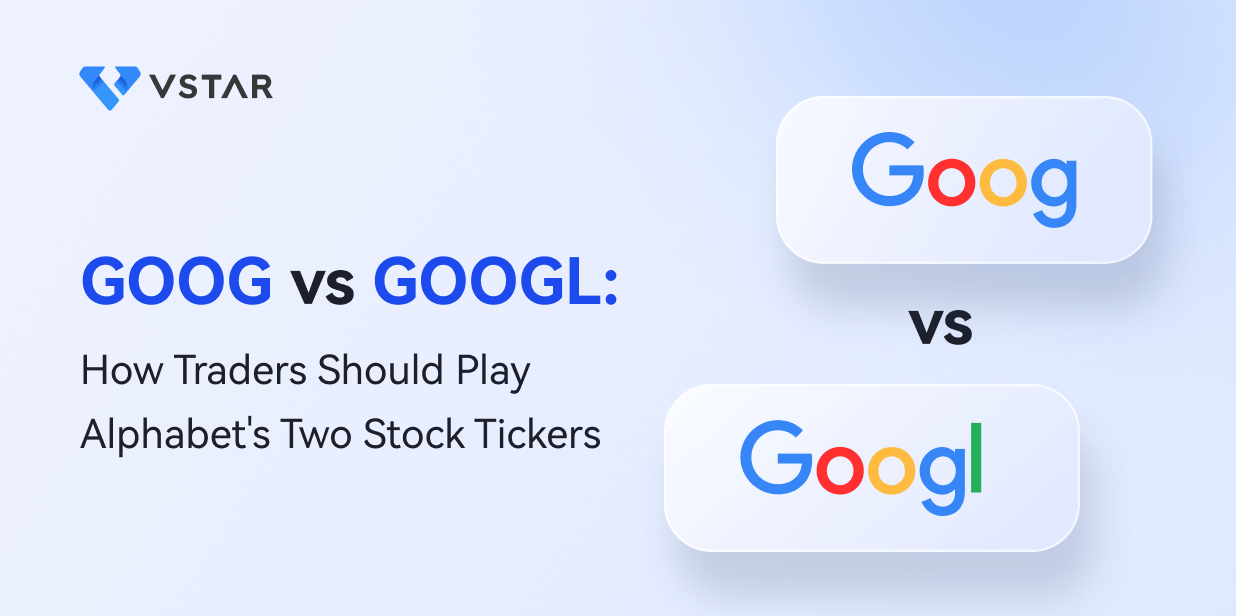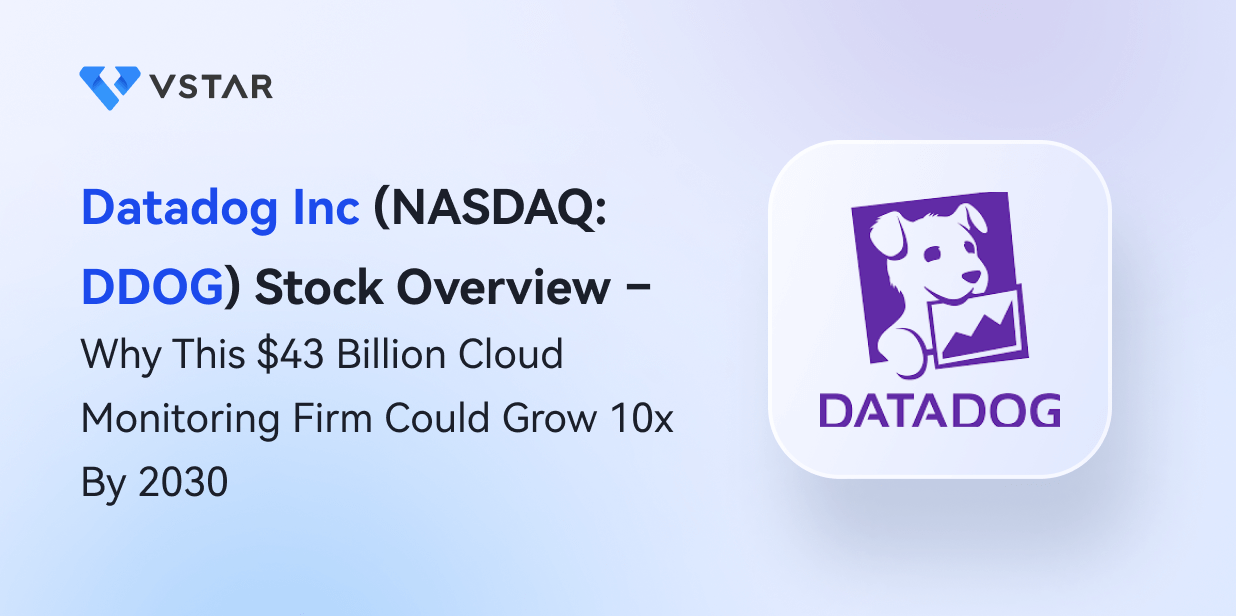The Internet and direct marketing retail industry is an essential part of the world's economy as it is a broad market segment that supports various aspects of the major business models. The industry encompasses all companies providing retail services primarily on the Internet, through mail orders, and home shopping retailers, including companies that run online marketplaces for consumer goods and services.
Investing in this industry has many benefits; some of these benefits include and are not limited to potential yearly dividends, a steady opportunity to make more money, and exposure to the diverse and inner workings of the industry. Buying stocks in this industry gives direction and access to the inner workings of some of the world's biggest competitors, like Amzn stock, baba stock, Jd stock, Meli stock, PDD stock, eBay stock, doordash stock, and many others.
This article will give investors an in-depth study of the seven best Internet and direct marketing retail stocks to invest in, their financial and stock performance, and a SWOT analysis of the various companies’ stocks. We will also show how to invest these stocks using CFDs on VSTAR, a global regulated trading platform that offers you access to more than 1000 markets.
Amazon.com, Inc. (NASDAQ: AMZN) - The Trillion-Dollar E-Commerce Empire
Amazon.com: Inc. (NASDAQ: AMZN) is one of the world's leading technology companies focusing on e-commerce, online advertising, and digital streaming. Referred to as one of the most influential economic and cultural forces in the world, Amazon, as of 2023 is the World's largest online retailer and marketplace as measured by revenue and market share. Amazon Inc. was founded in 1994 by Jeff Bezos in Washington, the state which till now houses the headquarters of the incorporation. Initially an online book store, it has become a place to find anything and people nickname it the everything store.
The company, which operated from Bezos' garage initially, didn’t look like it would generate any profit, but in the fourth quarter of 2001, it generated its first profit of 0.01 % on revenues above $1 billion. Amazon generated $386 billion in US retail e-commerce sales in 2020, up by 38% from 2019.
It gets better: as of December 2022, Amazon generated a revenue of $513.98 billion despite having to lay off some of its staff because of the pandemic. According to Analytics predictions from the Traders Union, by the end of 2023, AMZN stock will be about $219.71 and could possibly be about $2925. 32 by 2032.
Amazon is on the NASDAQ exchange as AMZN in the American stock exchange in New York City. The stock trades in U.S. dollars and follows the trading hours from 9:30 am to 4:00 pm. The stock also has pre-market and after-market trading sessions that extend from 4:00 to 9:30 a.m. and from 4:00 to 8:00 p.m., respectively.
As of June 16th, 2023, AMZN stock is worth 127.11 USD, 0.55% more than the previous trading day. Amazon does not currently pay dividends to its shareholders. AMZN has a PEG ratio of 2.46, with analysts rating consensus as a strong buy.
In comparison to various industry companies, below are some of the strengths and weaknesses of Amazon:
Strengths
● They have a strong brand image and reputation
● They have a great brand valuation with a value of $274 billion
● They are market leaders with over $1 trillion market capitalization and $513 billion revenue
● They have a strong financial performance.
Weaknesses
● They have to depend on third-party sellers to make profits
● They sometimes lose margins in a few areas like North America, because their business model is not unique to them.
● They have limited product control and customer loyalty.
Alibaba Group Holding Ltd (NYSE: BABA) - China’s Trillion-Dollar Tech Ambition
Alibaba Group Holding Limited (NYSE:BABA) is a Chinese multinational technology company specializing in e-commerce, retail, internet, and technology. Founded by Jack Ma, owned by Softbank Group with headquarters in Hangzhou, China; Alibaba got established in 1999 by 18 different people. It got founded to level the playing field of small and medium-sized enterprises in China to sell internationally through the Internet. It has now become a digital ecosystem with digital footprints worldwide.
The company started becoming profitable in 2002 and launched its subsidiary Taobao Marketplace, and Alipay. Alibaba has had growing revenue and assets since 2012. As of 2021, they had a revenue of over $7.1 billion and assets worth over $1.6 trillion, over 2 million and 3 million dollars, respectively, higher than the previous year. Alibaba has a net income of $7.4 billion as of 2022. According to analytics predictions, Alibaba stock should get to $143.55 at the end of 2023 and cost around $342.38 at the end of 2034.
Alibaba is listed as NYSE: BABA on the American stock exchange in New York City. The stock trades in U.S. dollars and follows the trading hours from 9:30 am to 4:00 pm. The stock also has pre-market and after-market trading sessions that extend from 4:00 to 9:30 a.m. and from 4:00 to 8:00 pm, respectively. As of June 16th, 2023, NYSE:BABA is worth 92.51 USD, which is 0.34% more than it was the previous trading day.
Alibaba in recent times has been under scrutiny since its affiliate financial technology group got forced to cancel its initial public offering and was fined $2.8 billion in 2021. Currently, Alibaba does not pay dividends to its shareholders.
Being one of the biggest internet and direct marketing companies in China, Alibaba has the vision to make it easy to do business anywhere; therefore, they have various strengths and weaknesses compared to various other companies.
Strengths
● They run multiple websites and businesses, which gives them the ability to have large revenue spread over a large number of customer sources
● They have established themselves as one of the largest retail businesses globally
● Alibaba has a higher gross margin and EBITDA than big companies like Amazon, Tencentse
● They have a strong research and development program that 8.8% of their revenue goes into.
Weaknesses
● Alibaba faces serious competitors in its business segments from companies like JD.com, Amazon, amongst others.
● In comparison to Amazon, their ROIC is lower by 1.23%
● Being a China-based company, they are very dependent on the health of China's economy at every point in time.
JD.com Inc. (NASDAQ: JD) - China's E-Commerce Underdog Takes On Alibaba and the World
JD.com Inc. (NASDAQ: JD), is China's largest online retailer. It is also the biggest retailer and the biggest internet company by revenue in the country. With its headquarters in Beijing, it got founded by Liu Qiangdong in 1998. Its retail platform first went online in 2004 as a magneto-optical store but soon branched out to electronics and mobile phones.
The Company has had various investments in different merchandise, including Walmart, which increased its investment in 2017 to 289.1 million shares. They in the second quarter of 2020 reported their net profits to be $2.3 billion and a customer base of 417 million users. As of 2021, they had a revenue of over $149 billion, with assets worth over $77.9 billion. In 2022, JD.com had a revenue of $151.69 billion and by March 2023, they had a 6.42 % decline which put their revenue at $35.38 billion.
JD.com Inc., as of December 2020, had 310,000 employees and a net income of $701.015 million. Analysts predict Jd. Com Inc. stock to be worth $58.71 by the end of 2025 and $154.83 by 2030.
JD.com Inc. is on the NASDAQ exchange list as JD in the American stock exchange in New York City. The stock trades in U.S. dollars and follows the trading hours from 9:30 am to 4:00 pm. The stock also has pre-market and after-market trading sessions that extend from 4:00 to 9:30 am. and from 4:00 to 8:00 pm, respectively. As of June 16th, 2023, JD.com stock (NASDAQ: JD) is worth $39.88, which is 0.23% less than the previous trading day. Jd.com Inc pays a quarterly dividend, and all shareholders who owned JD shares before April 2023 received a dividend payment of $0.6 per share.
Some of the strengths and weaknesses of Jd.com Inc in compared to other companies in the industry are:
Strengths
● They have the advantage of being the first movers
● They have a good track record of innovation and high margins in comparison to other retail industry competitors.
Weaknesses
● They have relatively low investments in research and development
● Compared to their peers, they have little loyalty amongst their suppliers; their turnover can also be low.
Mercadolibre Inc (NASDAQ: MELI) - The Amazon of Latin America
Mercadolibre inc (NASDAQ: MELI) is an argentine ecommerce company with its headquarters in Uruguay. The company got founded by Marcs Galperin in 1999. He founded it while still studying at the University as he got funds from John Muse. From its inception, Mercadolibre has been fortunate enough to receive various support financially, and in 2001, eBay purchased a 19.5% stake in the company.
The e-commerce brand operates under five primary business units; each unites to make the whole Mercadolibre Inc. The Units include; Marketplace, Mercado Pago, Mercado Libre, Mercado Shops and Mercado Credito.
As of 2022, the net income was $482 million, with a total revenue of $10.5 billion and total assets equating $13.7 billion. They have also not paid any dividends as of June 15, 2023, since 2013. Analysts say that MELI stock will cost $1628.97 at the beginning of 2024, and by 2030, it will cost $10,497.
Mercadolibre Inc. is on the NASDAQ exchange as MELI in the American stock exchange in New York City. The stock trades in U.S. dollars and follows the trading hours from 9:30 am to 4:00 pm. Also, the stock has pre-market and after-market trading sessions that extend from 4:00 to 9:30 am and from 4:00 to 8:00 pm, respectively. As of June 16th, 2023, NASDAQ: MELI is worth $1,194.74, which is 2.37% less than it was the previous trading day.
Being a Latin American company, Mercadolibre has some strengths and weaknesses that distinguish it from other companies in the industry. They include:
Strengths
● They have a good track record of driving innovation
● They have a diversified revenue stream and have a reasonable success rate of new product mix.
Weaknesses
● They have a very high turnover of employees compared to other companies
● There is a decline in their market share with an increase in revenue.
Pinduoduo Inc (NASDAQ: PDD) - China's Fastest-Growing E-Commerce Platform
PDD Inc. (NASDAQ: PDD) is a Chinese online retailer founded in 2015 by Colin Huang, the headquarters of the company is in Shanghai, China.
It has a revenue of over $18 billion as of 2022 and a net income of $4.5 billion. The current dividend yield for PDD Holdings Inc as of June 2023 is 0.00%. According to analyst predictions, Pinduoduo stock would be worth $130.55 at the beginning of 2024 and $2,495.44 by 2030.
PDD Inc. is on the NASDAQ exchange as PDD in the American stock exchange in New York City. The stock trades in U.S. dollars and follows the trading hours from 9:30 am to 4:00 pm. The stock also has pre-market and after-market trading sessions that extend from 4:00 to 9:30 am and from 4:00 to 8:00 pm, respectively. As of June 16th, 2023, NASDAQ: PDD is worth $79.87, which is 1.18% less than it was a day earlier.
A relatively new business in the e-commerce world, they also have their strengths and weaknesses which make them unique.
Strengths
●Pinduoduo has a unique business model that focuses on group buying behaviors
●They have strict merchant quality control, which helps with excellent user experience.
Weaknesses
● They depend a lot on third-party logistics for customer satisfaction
● In comparison with their peers, they have a limited variety of goods.
DoorDash Inc(NYSE: DASH) - On-Demand Delivery Gains and Pains in the Platform Economy
Doordash Inc (NYSE: DASH) is an American e-commerce company that operates in the food ordering and delivery service. With headquarters in San Francisco, it got founded in 2013 by four friends; Tony Xu, Stanley Tang, Andy Fang, and Evan Moore.
Currently, the largest food delivery provider in the United States, Doordash, has had several financial scandals, especially when skimming off their driver’s tips. In 2019, it lost $2.5 million to settle a lawsuit over its tipping policy. In 2017, they also settled with $100 million for misclassifying delivery drivers in California and Massachusetts.
Despite this, their revenue as of 2022 stands at $6.58 billion, with total assets of $9.789 billion. As of June 2023, Doordash does not pay any dividend to its stakeholders. Analysts predict that Doordash stock should be worth $86.707 by 2024.
Doordash gets listed as NYSE: DASH on the American stock exchange in New York City. The stock trades in U.S. dollars and follows the trading hours from 9:30 am to 4:00 pm. The stock also has pre-market and after-market trading sessions that extend from 4:00 to 9:30 am and from 4:00 to 8:00 pm, respectively. As of June 16th, 2023, NYSE: DASH is worth 73.26 USD, which is 2.09% more than the previous trading day.
As the biggest food delivery company in the United States, here are some of the strengths and weaknesses of Doordash:
Strengths
● They are market leaders in the United States
● They are currently operating in 4 different international markets
● They have very user-friendly online platforms and easy access.
Weaknesses
● In comparison to other companies, they have a limited international presence
● They have very high delivery prices
● They have a sketchy history of mismanagement or mishandling of funds.
eBay Inc. (NASDAQ: EBAY) - Auction Innovator Struggles to Reclaim "Visionary Retailer" Title in E-Commerce 2.0 Era
eBay Inc is an American multinational company that helps to ease consumer and business-to-consumer sales via their company’s web pages. Based in San Jose, Florida, eBay got founded in 1955 by Pierre Omidyar. As of 2019, eBay is in about 32 countries.
Currently one of the biggest e-commerce companies, as of 2022, they had a revenue of $9.79 billion and total assets worth up to $20.85 billion. As of December 2022, they had recorded 11,600 employees. eBay pays an annual dividend of $1.00, and they pay their shareholders quarterly $0.25. Over the past years, their dividend has grown by an average of 16% yearly. Analysts say eBay's stock price should be about $57.591 by 2028.
eBay Inc is on the NASDAQ exchange as EBAY in the American stock exchange in New York City. The stock trades in U.S. dollars and follows the trading hours from 9:30 am to 4:00 pm. The stock also has pre-market and after-market trading sessions that extend from 4:00 to 9:30 am and from 4:00 to 8:00 pm, respectively. As of June 16th, 2023, NASDAQ: EBAY is worth $45.06, which is 1.23 % less than it was the day before.
Being one of the world’s largest internet marketplace, here are some of the strengths and weaknesses of eBay:
Strengths
● Because of their business model, they have very few strong or direct competitors
● They have a wide range of reach with localization in over 30 countries
● They have built a name for themselves, which gives the people their trust and loyalty.
Weaknesses
● Their fees towards their sellers are ridiculously high
● They have not shown any new plan for sustaining their growth or revenue.
Internet & Direct Marketing Retail Stocks Trading Strategies
When it comes to the Internet and direct marketing retail stocks, there are three main strategies which one can decide to follow. They are:
Long-Term Investment Strategy
The long-term trading strategy is a style in which investors or traders hold their trades for a very long period. For a stock to be long-term, the investment must have occurred for at least one year.
Short-Term Investment Strategy
This style is when investors keep their stock for short periods. They are usually used for small market stocks, and investors hold their positions from as little as seconds to days.
Investors or traders using this strategy usually look for a quick profit from quick moves in the market.
Risk Management Techniques
This strategy involves reducing potential loss while at the same time not making a dent in the upside potential. This technique includes hedging, insurance, mitigation, etc.
Trade Internet & Direct Marketing Retail Stocks CFD at VSTAR

Source: Unsplash
Trading in the Internet and direct marketing retail and stocks can be one of the best decisions when taking advantage of the market trend. Because the market supports various business models, sales between buyers and sellers are easily facilitated.
In trading Internet and Direct Marketing retail stocks, you can choose one of these three ways: holding the share, buying an option, or trading a CFD. Each has pros and cons, but CFD trading has unique benefits, such as low costs and high flexibility. You can trade with a small deposit, profit from any price direction, and avoid commissions, fees, and premiums. You do not need to own the actual shares with CFDs.
You may be wondering why to trade with VSTAR; here are some reasons to choose this platform. VSTAR lets you trade CFDs on various markets, such as currencies, stocks, indices, and commodities. You can enjoy low fees, fast execution, and secure trading with VSTAR. You can also use its user-friendly app, start with a small deposit, and practice with a demo account. VSTAR supports multiple payment options for your convenience.
With VSTAR, you can trade E-commerce stocks, Mercadolibre stock, Amazon stock, Alibaba stock, Jd.com stock, and many others.
To trade any of these stocks CFDs with VSTAR, follow these simple steps:
● Visit www.vstar.com or download the VSTAR app on your device.
● Register for an account by providing your details, email address, phone number, etc.
● Verify your identity by uploading your proof of identity and address.
● Deposit funds into your account by choosing your preferred payment method and amount.
● Start trading by selecting your stock from the list of available instruments, entering your trade size, direction (buy or sell), stop loss, take profit, etc., and click on "Open Trade."
Conclusion
This article gives you a detailed dive into the top 7 Internet and direct marketing retail stocks. It discusses their overview, financial and stock performance, and current market trends and also gives you an insight into the strengths and weaknesses of all seven companies.
We also explored the three principal trading strategies. To learn more about CFD trading or start trading e-commerce stock CFDs with VSTAR, visit www.vstar.com or download the VSTAR app today!




